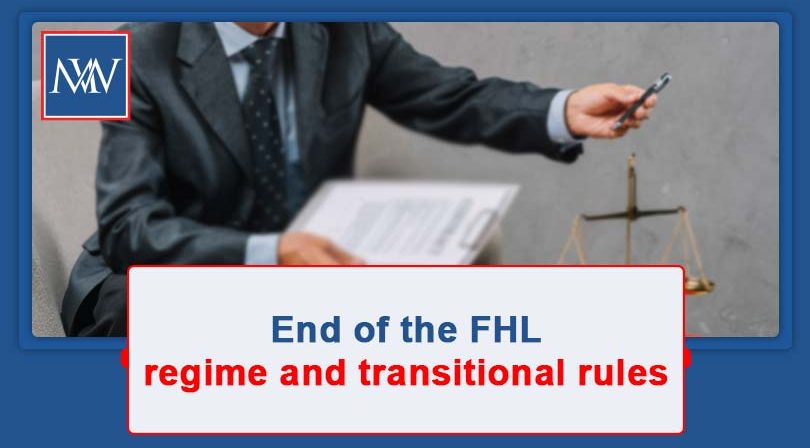
End of the FHL regime and transitional rules
Landlords with furnished holiday lettings (FHLs) currently enjoy favorable tax advantages compared to those letting residential property on longer-term lets. However, these advantages will end, and from 6 April 2025 FHLs will be treated as other residential lets. However, transitional rules will allow landlords to access some capital gains tax reliefs for a limited period.
Interest and finance costs
Landlords with FHLs were unaffected by the restrictions in the relief for interest and finance costs that apply to unincorporated landlords letting residential property and could continue to deduct interest and finance costs in full in calculating the taxable profit for their FHL business. However, from 6 April 2025, this is to come to an end, and relief for interest and finance costs will be given as a basic rate tax reduction. Corporate landlords letting holiday accommodation will still be able to deduct interest and finance costs in full.
Capital gains tax relief
One of the main advantages of the current FHL regime is the ability to access a range of capital gains tax reliefs available to traders. These include access to Business Asset Disposal Relief (BADR), business asset rollover relief and gift holdover relief.
Under transitional rules, where the FHL business ceased before 6 April 2025 and the conditions for BADR were met, the relief will continue to apply beyond that date to disposal occurring within the normal three-year period following cessation. The ability to access BADR is very valuable as it reduces the rate of tax on the gain on the gain to 10% – saving £1,400 for every £10,000 of gain where the gain would otherwise be chargeable at the higher residential rate of 24%. Unincorporated landlords looking to bring their FHL business to an end may wish to consider a cessation date before 6 April 2025, particularly where the properties are pregnant with gain.
Access to the other capital gains tax reliefs will also be lost from 6 April 2025. However, where the criteria for relief include conditions that apply in a future tax year (such as the business asset rollover relief requirement that the new asset must be acquired within three years from the date of disposal of the old asset), the conditions will not be disturbed where the FHL rules were met before the abolition of the regime.
It should be noted that an anti-forestalling rule will apply which will prevent the use of unconditional contracts in a bid to secure access to the reliefs. This will apply to contracts entered into on or after 6 March 2024.
Losses
From 6 April 2025, an unincorporated landlord with both holiday lets and other lets will have a single property business. The profits and losses from all properties will be combined to arrive at the profit or loss from the business as a whole. Where a landlord has unused losses from an FHL business as of 5 April 2025, these will be carried forward and will be available to offset against the future profits of the combined property business going forward.
Pensions
Currently, profits from an FHL business count as relevant earnings for pension purposes. This will cease to be the case from 6 April 2025. As tax-relieved pension contributions are capped at 100% of earnings (or £3,600 where this is higher), subject to the availability of the annual allowance, FHL landlords may wish to consider making pension contributions in 2024/25.
Furnishings and fixtures
Landlords with FHL are currently able to claim capital allowances on furnishings and fixtures. This will usually be in the form of the Annual Investment Allowance to secure 100% relief for the expenditure in the year in which it is incurred. However, the landlord has the option to claim a writing down allowance instead and, where the landlord has a balance on the capital allowances pool, they will be able to continue to claim capital allowances beyond 5 April 2025 until that balance has been extinguished.
Going forward, no relief will be available for new domestic items from 6 April 2025. Instead, relief will be available on a like-for-like basis when these are replaced under the rules for the replacement of domestic items.
More flexibility
Access to the FHL rules requires the property to meet strict conditions as to availability for letting and days actually let. Although the landlord will need to meet reduced requirements to access business rates relief, the removal of the FHL rules will provide greater flexibility as to how the property is let. For example, a landlord could let a property as a holiday let over the summer and on a longer-term let over the winter without worrying about falling foul of the FHL rules. This may lead to an increase in rental income.
Partner note: www.gov.uk/government/publications/furnished-holiday-lettings-tax-regime-abolition.
For more information, Book a Free Consultation
Need Accountancy Support?
For information on bespoke training, or if you have any other questions for Makesworth Accountant, please fill in your details below
















 151
151